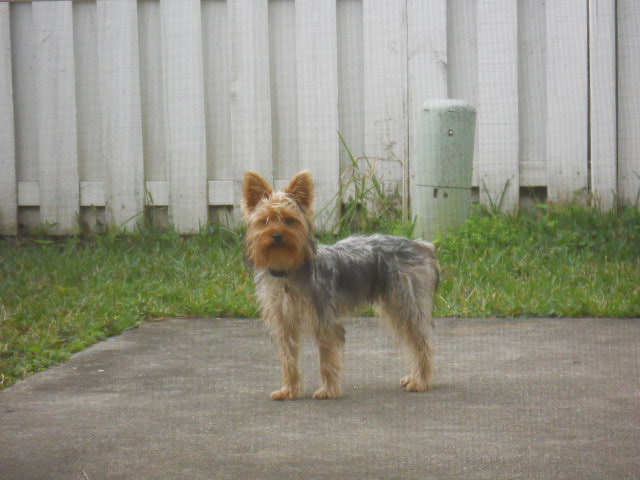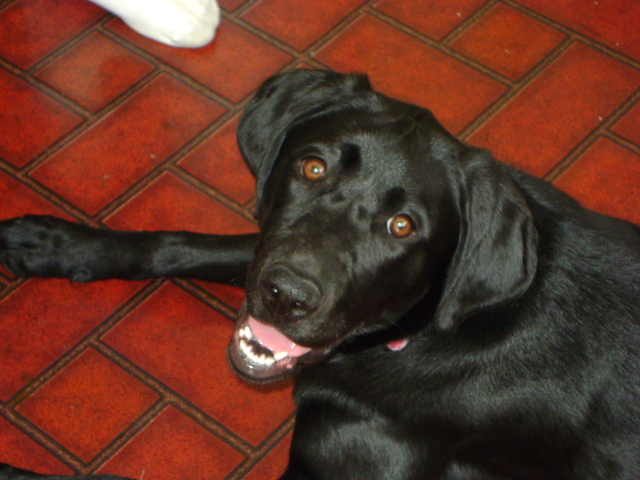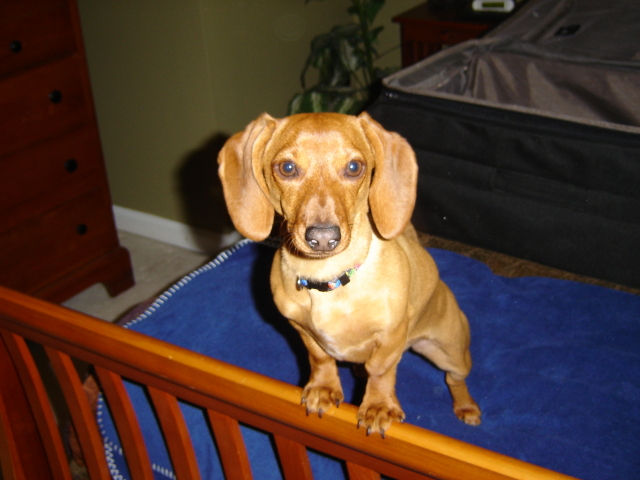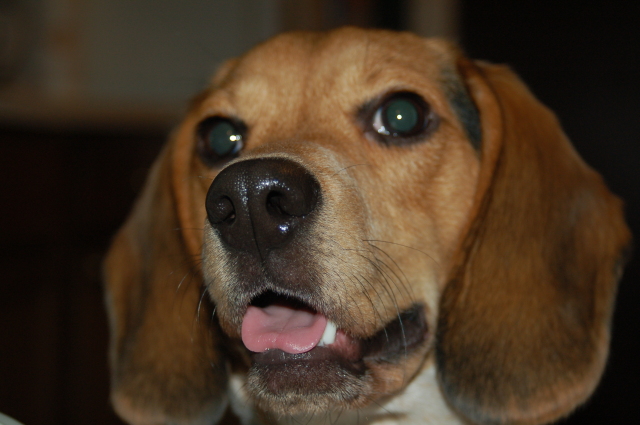QuestionQUESTION: hello, let my start by telling about my baby, she is a 2 year old Chesapeake bay retreiver. she is spayed and current on all shots. she has been temperament tested at the facility i work for and certified as a therapy dog for the developmentaly disabled. she is very loving wants to be with me all the time. i take her most places i go and gets along well with other animals and strangers. we also have a 6 year old Boston terrier female spayed, and a 4 year old female cocker spaniel not spayed. the problem i have is that about once a week Damara will pee on my daughters bed. always the same bed even though she has several to choose from, and i can not determine what the trigger is. any help you can give would be greatly appreciated. we have had to replace the mattress once and it is getting expensive. thank you for your time.
ANSWER: The Chessie can be a very dominant and difficult breed. You are to be congratulated for doing such a wonderful job with this very young dog. Her behavior toward your daughter's sleeping place may be a marking behavior, making a strong statement to your two other females (especially the unspayed female.) Think back carefully to when this behavior began. Was the Cocker in, or close to (before or after) season? Does either the Cocker or Boston sleep with your daughter or spend a lot of time with her, or is the Chessie her first choice of dog companion? is your daughter a child or is she close to menstruation (very important)? Where in your dog pack does the Chessie lie (top, middle, bottom?) You have a dog pack related problem. Your first defense is to CLOSE THE DOOR to the bedroom. Observe your three dogs together over the course of the next week and keep notes regarding their interaction. Be the detective in this situation and then repost your report so we can figure out what's really going on and find the remedy.
---------- FOLLOW-UP ----------
QUESTION: hello again, thank you for your help, this problem causes a lot of stress in the house when we find a wet bed at bedtime. i will try to give you the best info i can to answer your questions. i do not know where the cocker was in her cycle (during or in between cycles) when this started it has been going on for a few months now. lately about every two weeks. both the cocker and Boston sleep with Abby (daughter) on a regular basis. mara (chessie) sleeps in my room on the floor next to the bed every night with my wife and every day with me ( i work nights), if someone lets her out of my room during the day she will not leave the upstairs hall as long as i am in the bedroom. mara is not Abby's first choice of dog the Boston is. but the chessie is my other daughters first. when i am downstairs she lays on the couch with, goes out and runs around the yard with and trick or treats with Gracie. Gracie is 9 years old and Abby is 13, the doctor said to expect her to start menstruation soon. there is no clear pack leader among the 3 dogs. they all seem to respect me as the family pack leader but among them it seems like they all act as alpha. no one ever acts submissive to the others. mara usually wins because of size not because the other dogs back down. there relationship is weird it seems like the Boston and chessie get along good, no one tries to be dominate, they play often and it is funny to watch because the chessie out weighs her 8 to 1 and is so gentle. the Boston and the cocker act like they respect each others space, neither one bothers the other. but the cocker and chessie have there issues. the chessie could not care less about the cocker but the cocker does not like the chessie. she will growl at her when she comes near her or her toys/food. i don't know if this will help but when i lay in the couch recliner the cocker and Boston will lay on my lap/legs, and the chessie will lay next to me and put her head on my lap. we do this most every day with no aggression from anyone. i hope this helps and was not to long. thank you for you help. if you need anymore info please me know.
AnswerYour Chessia and Cocker are having a problem. The Chessie is not 'ignoring' the Cocker, she is making a rank statement. The higher ranking does not "suffer" the attentions of others, nor acknowledge that attention. You've done a good job with this dominant breed bitch and she respects you, and other humans in the household; but she definitely has issues with the Cocker (and VICE VERSA! very strong issues going in that direction.) The fact that your daughter is no doubt flooding with estrogen, and the Cocker sometimes sleeps in that room, is a huge clue. I have no idea where in her cycle your Cocker is, but she needs to be spayed (ten to twelve weeks from her last cycle.) Although this is not an instant fix, it will eventually (over months) eliminate the estrogen driven aspect of both the Cocker's behavior and the Chessie's response. Meanwhile, you need to keep the Cocker OUT of your daughter's room. She may not sleep there, ever. And the Chessie must be prevented from going into that room unattended AT ALL TIMES. Your daughter is certainly old enough to learn to close her door EVERY TIME she leaves the room (or be prepared to change her own bed, let's drag her into this too lol.) Having three female dogs in the same household can be a real challenge; you need to learn about managing a multiple dog household in terms of reading and understanding their communication between/among one another. I suggest you read Patricia McConnell Ph.D.'s book on this topic as well as Turid Rugaas' book on calming signals. Once you really wrap your eyes around this situation with a load of information, you will readily see what's really going on. And once you've accomplished that, you can establish/maintain the rank among these three dogs. It appears your Chessie is on top, the Cocker second (but unhappily), the Boston third, but this is based on your reporting, not on my personal evaluation. This situation can easily erupt into full blown aggression between the Chessie and Cocker (I'm not saying it will, but the possibility exists.) The Cocker is approaching the last threshold of adult domestic dog behavior (age 5), the Chessie is just obtaining her first threshold. Your direct intervention, treating the perceived higher ranking as such in sight of the other dogs (based upon educated observation) can prevent this and improve their overall relationships.

 agressive silky terrier
Question
Lucas 1 year old
Hi Jennifer:
I have a
agressive silky terrier
Question
Lucas 1 year old
Hi Jennifer:
I have a
 Black lab - 1 yr
QuestionSheba
QUESTION: My lab loves to bite her
Black lab - 1 yr
QuestionSheba
QUESTION: My lab loves to bite her
 Agressive 1 yr old mini goldendoodle
Question
our millie
My husband and I got our min
Agressive 1 yr old mini goldendoodle
Question
our millie
My husband and I got our min
 Mini Daschund with anxiety issues
QuestionAbigayle
QUESTION: I have a 3 1/2 yr old
Mini Daschund with anxiety issues
QuestionAbigayle
QUESTION: I have a 3 1/2 yr old
 uncontrollable beagle
Question
max
My beagle is a year and a half. Ive had hi
uncontrollable beagle
Question
max
My beagle is a year and a half. Ive had hi